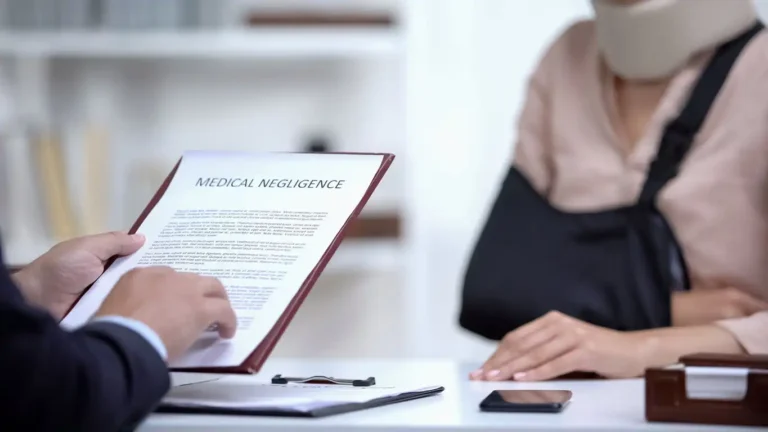Bicycle accidents can lead to a range of injuries, from minor bruises to life-altering trauma. After an accident, seeking medical attention and maintaining thorough documentation is one of the most crucial steps you can take. Medical records not only support your recovery but also play a vital role in strengthening your personal injury claim. Here’s why medical documentation is essential after a bicycle accident and how it can impact your case.
1. Ensures Your Health and Safety
Your primary focus after any accident should be your health and safety. Some injuries, such as internal trauma, whiplash, or concussions, may not show symptoms immediately but can worsen over time. Seeking medical care ensures that potential injuries are diagnosed and treated promptly, reducing the risk of long-term health complications. Medical professionals can identify injuries that you may not have noticed initially, providing a clear path for recovery.
2. Creates a Record of Your Injuries
Medical documentation provides an official record of the injuries you sustained due to the accident. This record can include:
- Initial emergency room or doctor’s visit notes
- Diagnostic test results (X-rays, MRIs, CT scans)
- Treatment plans and prescriptions
- Follow-up appointments and specialist consultations These documents serve as key evidence when filing a personal injury claim and help establish a direct link between the accident and your injuries.
3. Strengthens Your Personal Injury Claim
To receive fair compensation for your injuries, you must demonstrate that the accident caused your injuries and that those injuries have impacted your life. Insurance companies and defense attorneys may try to downplay the severity of your injuries or question their cause. Comprehensive medical documentation counters these tactics by:
- Clearly outlining the extent and nature of your injuries
- Detailing the treatment you received
- Providing a timeline of your medical care from the date of the accident onward This evidence is critical for negotiating a fair settlement or presenting a strong case in court.
4. Demonstrates the Impact on Your Life
Medical documentation doesn’t just record your physical injuries—it also helps convey the broader impact on your daily life. Chronic pain, limited mobility, and psychological effects such as anxiety or depression can all be outlined in your medical records and doctor’s notes. This information is essential for calculating non-economic damages, such as pain and suffering, which can significantly increase the value of your claim.
5. Supports Your Credibility
Timely medical documentation supports your credibility and the legitimacy of your claim. If you delay seeking medical attention or fail to follow treatment plans, insurance companies may argue that your injuries are not as severe as you claim or that they are unrelated to the accident. By seeking immediate care and adhering to prescribed treatments, you reinforce the validity of your case and demonstrate that your injuries warrant compensation.
6. Connects Injuries Directly to the Accident
Medical documentation creates a timeline that connects your injuries directly to the bicycle accident. This link is critical in personal injury cases, as it helps establish causation—the connection between the accident and your injuries. Without this documentation, the insurance company may argue that your injuries were pre-existing or occurred after the accident.
7. Helps Prove Future Medical Expenses
Some bicycle accident injuries require long-term treatment, rehabilitation, or even future surgeries. Medical documentation from specialists and physical therapists can outline the anticipated future care you will need. This information is essential for pursuing compensation that covers not only current medical bills but also future medical expenses, ensuring that you’re not left to bear the financial burden on your own.
8. Supports Claims for Lost Wages and Earning Capacity
If your injuries prevent you from working, medical documentation can support claims for lost wages and reduced earning capacity. Doctor’s notes indicating work restrictions, treatment timelines, and recommendations from specialists are all valuable for demonstrating that your injuries have impacted your ability to earn a living.
9. Tips for Maintaining Proper Medical Documentation
- Seek medical attention immediately after the accident, even if you feel okay. Some injuries may take time to manifest.
- Keep copies of all medical records, including doctor’s notes, diagnostic test results, and hospital discharge summaries.
- Follow all treatment plans and attend all follow-up appointments. Missing appointments or not following your doctor’s recommendations could weaken your case.
- Keep a personal injury diary where you document your symptoms, pain levels, and how your injuries affect your daily life. This can supplement your medical records and add a personal touch to your claim.
10. How a Bicycle Accident Lawyer Can Help
Working with an experienced bicycle accident lawyer can make the process of gathering and organizing medical documentation more efficient. Your attorney can:
- Collect and compile your medical records as part of your evidence package
- Consult with medical experts to support your claim
- Use your medical documentation to build a strong case for fair compensation An attorney will also handle communication with the insurance company, ensuring that your medical evidence is presented effectively and that your rights are protected.
Final Thoughts
The importance of medical documentation after a bicycle accident cannot be overstated. It plays a pivotal role in proving the extent of your injuries, connecting them to the accident, and supporting your claim for fair compensation. If you or a loved one has been injured in a bicycle accident, seeking prompt medical attention and maintaining thorough documentation is essential for a successful personal injury claim.



